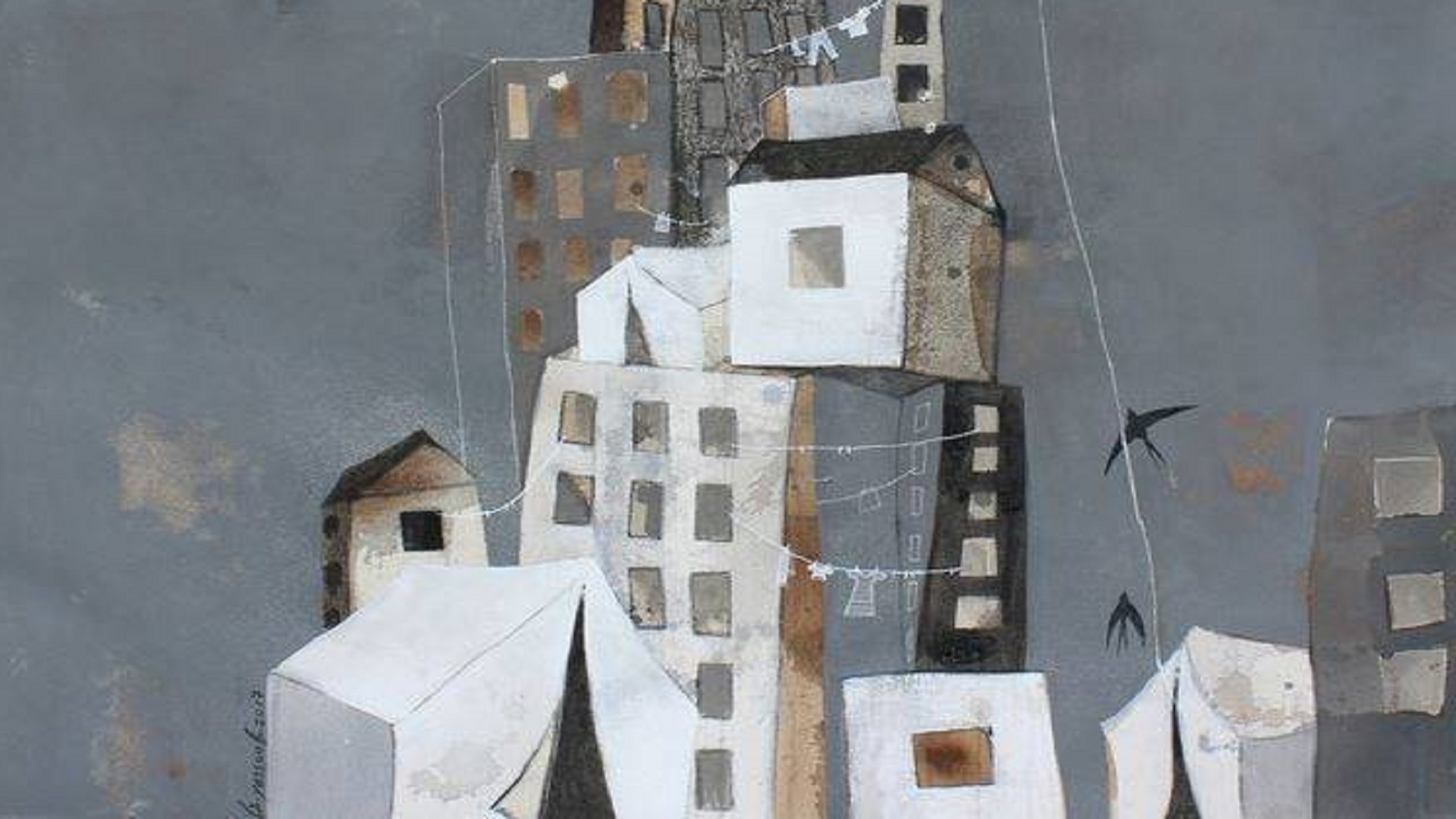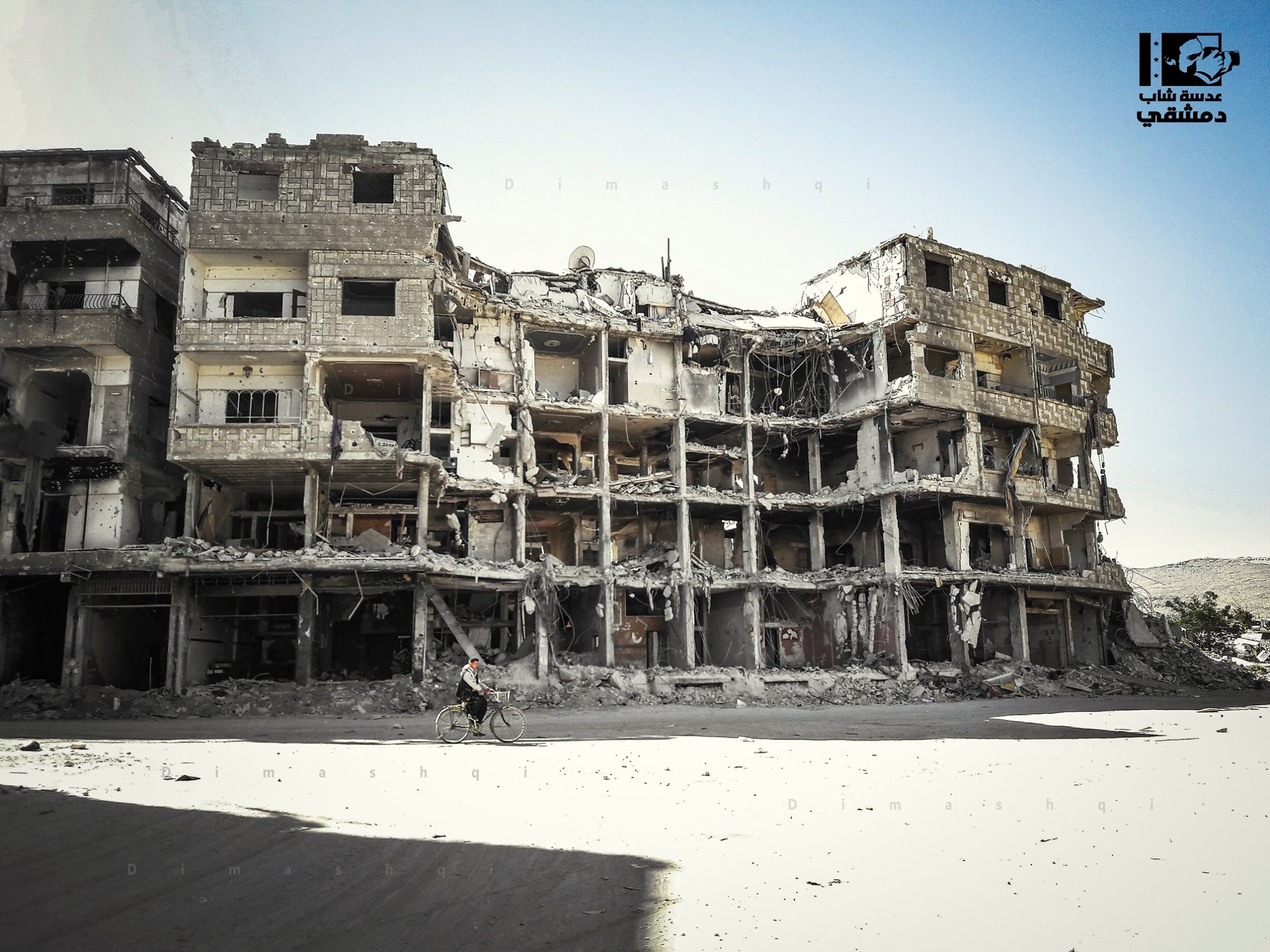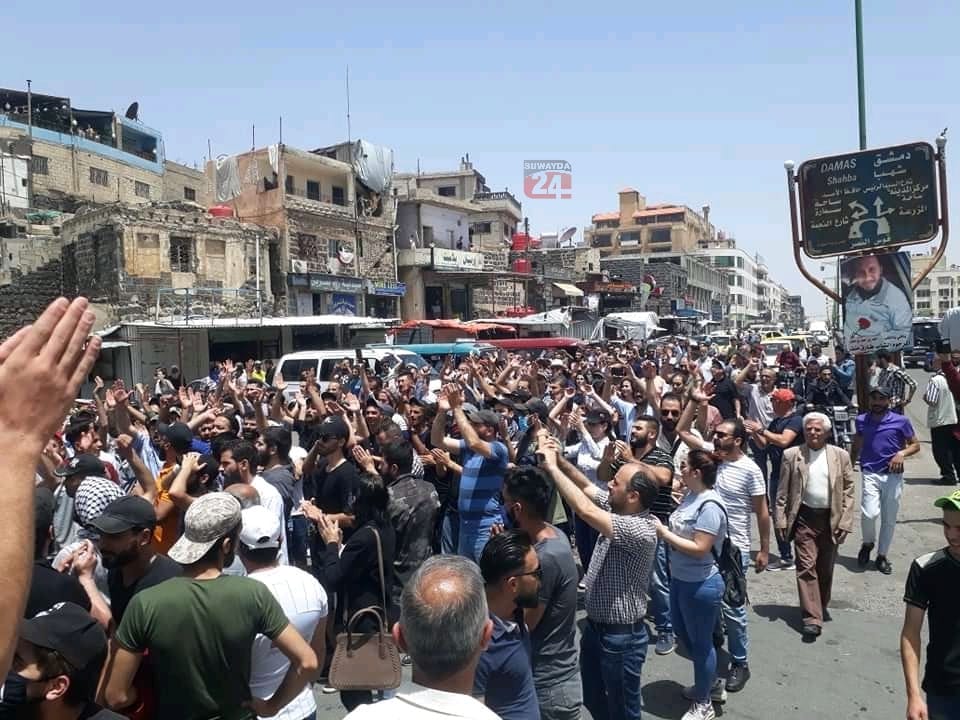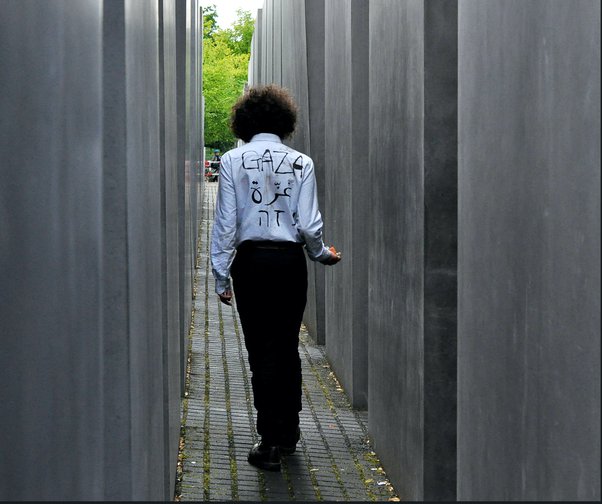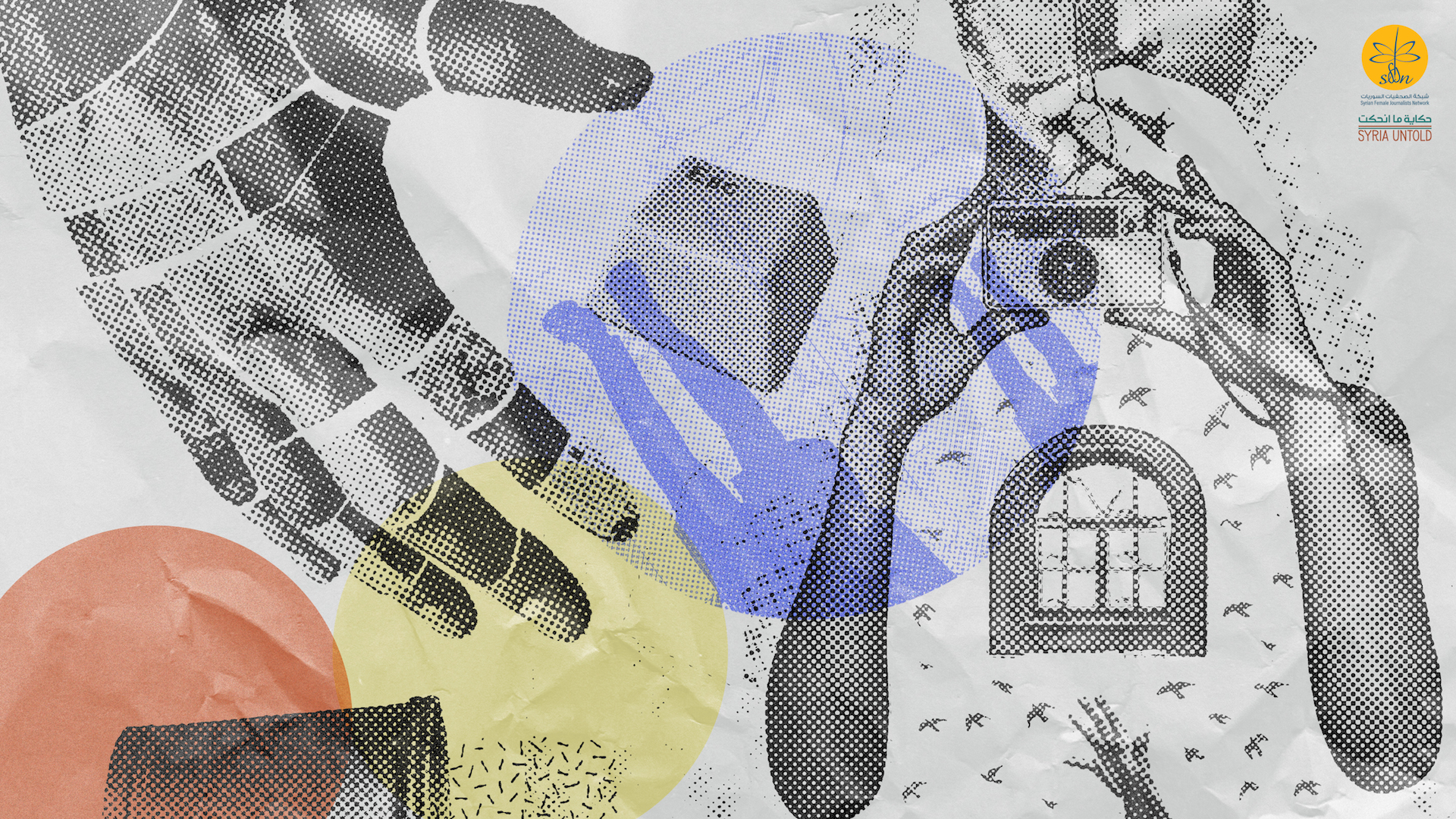From Damascus to Berlin: A Reuters journalist's quest for family reunion (Reuters)
“When the ones you love are seen only on the screens of your laptop or phone, they slowly become unreal, like your favorite childhood TV character: very familiar, but imaginary.
In Arabic, we call it 'ghurba,' which has an unsatisfying translation of 'being a stranger in a foreign land.' It’s trying to cook all your favorite dishes at once, just to reassure yourself that you can bring home back; it’s the long Netflix evening where tea is made in a cup, not the big pot your mother used to keep ready for you; it’s dreading weekends with their empty hours slowly sneaking in on quiet Friday evenings.”
Syrian Doctor Accused of Torture Is Arrested in Germany (The New York Times)
A ‘missing piece’ in the debate: As Caesar sanctions go into effect, are ordinary Syrians protected?
18 June 2020
“Dr. Mousa, who was still practicing when he was arrested, is accused of torturing a man detained during an antigovernment demonstration in October 2011 in the Syrian city of Homs, according to a statement from the German federal prosecutor’s office.
After being tortured by prison officials, the man had an epileptic attack, the statement said. Dr. Mousa was called to the scene and, according to the statement, proceeded to beat the man to the ground with a plastic pipe and then kick him. Dr. Mousa was called to treat the man the next day, but instead beat him until he lost consciousness, the statement said.”
Syrians tell why they are rising against the regime ‘no matter what’ (The National)
“State and regional media outlets are describing the demonstrations as ‘economically driven’ and a response to the currency collapse after the Syrian pound plummeted to about 2,700 to the US dollar last week on the black market.
But protesters are demanding a wider change, calling for the removal of Mr Al Assad with chants of ‘Bashar, leave’ and signs advocating an ‘inclusive civilian secular state.’”
'Tears for their sons': Republished Caesar photos bring fresh agony to Syria (Middle East Eye)
"Thousands of Syrians are now reliving the pain of lost relatives, thought to have been killed by their nation's intelligence services, after thousands of photos of tortured detainees first published several years ago recently resurfaced on the internet."
Hundreds of thousands of videos from Syria have disappeared from social media, researchers say (Reuters)
“From bombings and protests to the opening of a new health centre, student journalist Baraa Razzouk has been documenting daily life in Idlib, Syria, for years, and posting the videos to his YouTube account.
But this month, the 21-year-old started getting automated emails from YouTube alerting him that his videos violated its policy, and that they would be deleted. As of this month, more than a dozen of his videos had been removed, he said.”
Is Ahmad al-Oda winning the ‘hearts and minds’ of Daraa’s people? (Middle East Institute)
“On June 20 a bus carrying soldiers from the Eighth Brigade of the Fifth Corps, travelling from Latakia to Busra al-Sham, hit a roadside improvised explosive device...leaving nine dead and 13 injured. The following day, the funeral for the nine soldiers who died in the IED attack quickly turned into the largest protest Daraa has seen since 2018.”
These Syrian militiamen were foes in their civil war. Now they are battling each other in Libya. (The Washington Post)
"The Syrian fighter was a teenager when he joined his first militia and a veteran of two armed groups by age 25, a close relative said. He posted brooding photos of himself on Facebook wearing fatigues and posing with guns, proud to share his battlefield exploits.
But there are no posts about Mamdouh’s most recent assignment, in Libya, where he joined a Russian-backed security force, according to the relative. The mission was supposed to be secret, but it also carried a whiff of shame."
Surviving monstrosities: An interview with Yassin al-Haj Saleh (Al-Jumhuriya)
“The revolution was about appropriating politics; that is, owning talk about public issues and gathering and protesting publicly. Building on this, I think it is quite fair to say our struggle was essentially about words: using them, interpreting them, and protesting with them. Both the revolution and the words have been crushed during nine Trojan years, during which Syria has been reduced to a battlefield of inhuman powers, while Syrians are pushed back to silence and absence; dispersed, impoverished, ‘subalternized,’ and denied a say in their fate.”


